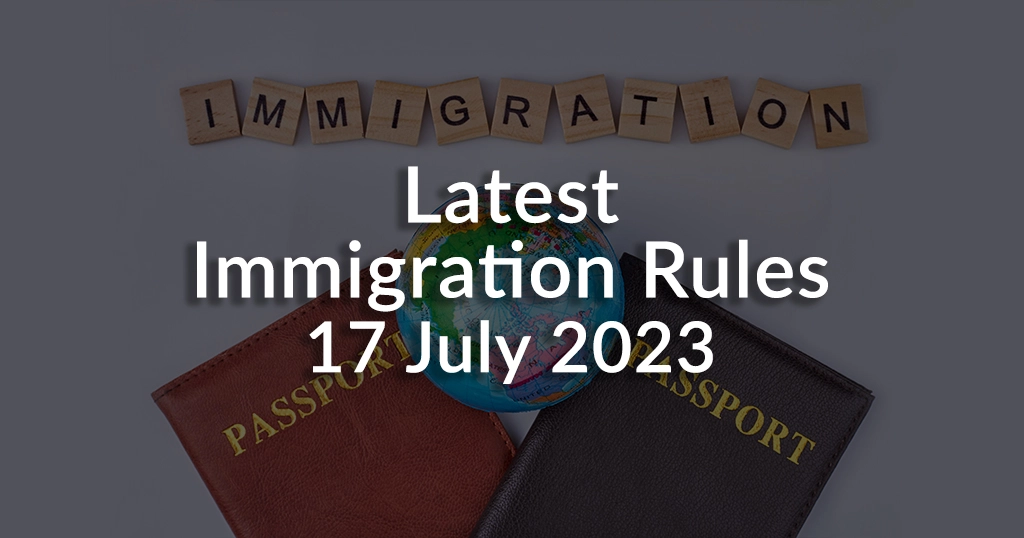
The following are a few of the many recent changes to the immigration rules:
There have been changes to the validity requirements for an applicant seeking permission to stay who currently has, or most recently had, permission as a student.
(SW 1.5A.) On the date of application, the applicant must meet one of Conditions A, B, or C below:
Condition A: The applicant must have completed the course of study for which the
Confirmation of Acceptance for Studies was assigned OR
Condition B: (i) The applicant must be studying a full-time course of study at a degree level or above with a higher education provider that has a track record of compliance, and (ii) the Certificate of Sponsorship must NOT begin before the course completion date OR
Condition C:
(i) The applicant must be studying a full-time course of study leading to the award of a PhD with a higher education provider that has a track record of compliance and
(ii) the Certificate of Sponsorship must not begin 24 months after the start date of that course.
The Shortage occupation list has widened to include jobs within the construction sector, such as carpenters, bricklayers, and roofers. The fishing sector has also expanded and now includes agriculture and fishing trades.
(333C.) A claim for Asylum is now regarded as ‘implicitly withdrawn’ under two new additional grounds: (1) if an applicant fails to maintain contact with the home Office or provide up-to-date contact details; or (2) if an applicant fails to attend any reporting events unless the failure was due to circumstances beyond their control.
The distinction between refugees in Groups 1 and 2 has also been eliminated. This enabled those granted humanitarian protection and refugees who entered the country illegally to receive only a 30-month leave to remain at a time, rather than 5 years followed by indefinite leave to remain.
A new bullet point is inserted into paragraph EU4 of Appendix EU, stating:
The Secretary of State may extend limited leave, regardless of whether the person has made a valid application under this Appendix for such an extension’.
This amends the EU settlement schemes breach on the UK-EU withdrawal agreement, which allowed holders of pre-settled status to become unlawful residents if they did not apply for settled status.
There are also changes to the validity requirements of the EUSS. Firstly, meeting the deadline for the application will be a validity rather than an eligibility requirement for EUSS applications under paragraph EU9 of Appendix EU. This enables the Secretary of State to consider whether there are reasonable grounds for delay in an application, and if there are none, the application will be rejected with no right to appeal. Secondly, in-country applications made after 9 August 2023 as joining family members can now be rejected as invalid if the applicant is an illegal entrant. This is to reinforce the government’s approach to tacking illegal immigration.
Dependent relatives’ definition under Appendix EU, will include the child of a durable partner if the child has turned 18 since, they were granted leave in this capacity.
The Home Office also disclosed plans for individuals in 2024 with pre-settled settled status to automatically transition to full settled status if automated reviews of public records reveal they are eligible.
Students commencing their courses after January 1, 2024, may only bring dependents if they are government-sponsored or enrolled in a programme leading to a PhD, another doctoral degree, or a research-based higher degree. Dependents who are currently in the UK can still extend their leave.
Please see below a link in relation to full details of changes in the Immigration Rules:
Family Law
Housing and Property Law
Immigration Law
We offer the dedicated support and advice you require from the very outset of your matter.